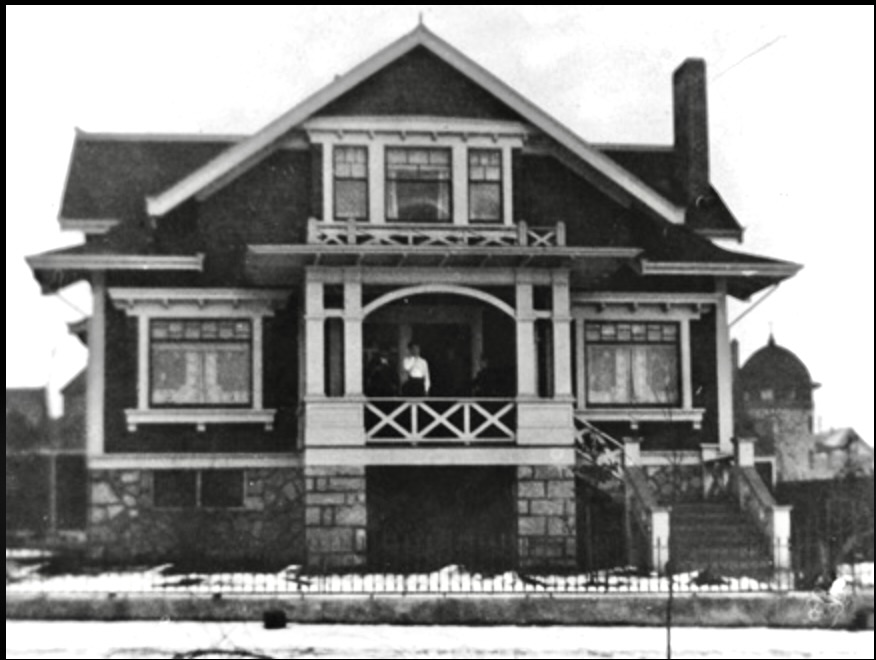
Nov 8, 2023: End of single family housing? NDP rushes through housing policy; City Council implements Vancouver Plan
Today we bring you updates and news on important issues affecting our city at large, our neighbourhoods, and our right as residents to have a voice in the major policies and plans being fast-tracked by governments. A common theme is the top-down trend to remove public participation — especially neighbourhood voices — which has already fallen to one of its lowest points in decades.
The further loss of public input resumed last week with news from the provincial government. Legislation to put an end to the traditional “single-family” neighbourhood is now in the works in Victoria. Calling Vancouver’s current zoning rules “outdated,” Premier David Eby introduced new legislation that will see detached homes replaced with Small Scale Multi-Unit Housing (SSMU).
Under the Province’s proposed legislation, Bill 44, land use authority will transfer from municipalities to the Province. This would override both the Vancouver Charter, that applies to the City of Vancouver, and the Local Government Act, that applies to the rest of the province. In one fell swoop, the Premier has ended decades of municipal planning independence.
It means that:
- Every municipality will be required to have an Official Community Plan that complies with guidelines set by the Province, which will be reviewed every few years. In Vancouver, that plan will be the Vancouver Plan.
- Each municipality must allow SSMU housing in all existing zones that are currently zoned for single-family or duplex homes.
- The Province will dictate, through guidelines, prescriptive zoning requirements that municipalities must adopt, including the number of units, FSR, height, storeys, setbacks, site coverage, form, and locations.
- There will be no requirement for the Province to consult on the provincial guidelines with municipalities, nor for municipalities to consult with their residents.
- Heritage designation or a Heritage Restoration Agreement (HRA) can no longer limit current or future development rights. This removes all potential heritage or character retention tools.
Cumulatively, Bill 44 will severely curtail public consultation. “New proposed changes will also phase out one-off public hearings for rezonings and housing projects that are consistent and aligned with the official community plans,” says an official memo released by Eby’s office last week. “Instead, there will be more frequent opportunities for people to be involved in shaping their communities earlier in the process (would this be continuing with the City surveys as the main form of consultation?) when official community plans are updated. Municipalities,” the announcement continues, “must expedite and streamline permitting by updating community plans and zoning bylaws on a regular basis to ensure they have enough housing to meet the needs of both their current and future residents.”
Council votes to repeal Community Vision’s Planning and Policy guidelines to make way for the Vancouver Plan
Moving at a similar speed to Eby, Vancouver City Council last week approved the implementation of the Vancouver Plan, beginning with Phase One of the strategy. Council members repealed 72 Council-approved policies and guidelines from Community Visions, a planning guide that was the result of many years’ work involving citizen collaboration. Beginning early next year, the Vancouver Plan vision will begin to take shape across the city. We can expect more densification and taller buildings, especially those close to public transit (sky train/subway) stations.
At last Wednesday’s Council meeting, Councillors Peter Meiszner and Adriane Carr asked Planning staff whether members of the public and resident associations were consulted on phasing out the Community Visions guide. Planning staff members said they had reached out to resident associations and added that their department planned to continue to work with residents on the Vancouver Plan. However, many of the neighbourhood associations, including UKRA, said they had not been contacted by staff.
Vancouver after a year of Ken Sim
In a recent profile of Mayor Ken Sim published in the Vancouver Sun, we learn that that the mayor is a “likable person” and keenly energetic to get things done. Members of UKRA briefly met with Sim in the run-up to last year’s election. We agree that the mayor is affable. Sporty, too, it turns out. A chin-up bar has been installed in his office which allows him to stay fit while he works to stay on top of the big issues facing Vancouver today — mental health and the opioid crisis, making Vancouver safe again, and above all, adding more housing for people. The City has managed to hire 100 police officers, but, as of last month, only 10 nurses of the promised 100 had been retained. And rent costs in Vancouver are slightly down but remain among the highest on the continent. According to zumper.com, the average rate for a one-bedroom apartment in Vancouver currently hovers near $2,750.
Those who follow weekly Council meetings may have noticed that Sim is frequently not sitting in the Mayor’s chair. This is due to conflict-of-interest reasons (Sim has many ties to business owners and developers throughout the City). When he is present, Sim is noticeably quiet. It makes one wonder where the decisions are being made, and who is at that table.
Sim’s ABC party has been criticized for making “opaque” plans that aren’t shared with the non-ABC members of Council. Cllr. Pete Fry told the Vancouver Sun that some ABC “decisions aren’t made in public and under the full scrutiny of democratic process, resulting in surprise amendments and agendas, and highly political, unilateral outcomes.”
View Cones
How important are Vancouver’s stunning views of the mountains and water? Our City’s view cones have been preserved since 1989. But now, according to Cllr. Peter Meiszner, we may have too many of them. Meiszner reminded his colleagues at a recent Council meeting that Vancouver is suffering from a housing crisis, not a view cone crisis. It just so happens that developer Intracorp Homes has applied to build a 56-storey tower that will obstruct one particular downtown view cone. You can read the story about the arguments for keeping the sightlines visible by former Vancouver planner Larry Beasley in the Nov. 3 edition of The Globe and Mail.
Kitsilano Coalition News
The Kitsilano Coalition is waiting for a decision from the Supreme Court of B.C. on its constitutional case against Bill 26, which effectively quashed the Coalition’s first legal case involving the supportive housing development planned for 7th and 8th at Arbutus.
Coalition spokesperson Karen Finnan called Bill 26 “unprecedented legislation” to deliberately circumvent the group’s lawsuit. Said Finnan: “The willingness of elected representatives to enact legislation that disregards constitutional rights should alarm every resident of this province. Today Premier Eby is wielding his legislative powers against Vancouver residents to deny us our constitutionally protected right to challenge the legality of the City’s actions under the Vancouver Charter. Tomorrow it could be your community if citizens do not stand up for rights that are foundational in a democratic society.”
The case was heard by Justice Warren B. Milman October 10-12. Outside the courtroom, the Coalition’s legal counsel, Peter Gall of Gall Legge Grant Zwack LLP, appeared confident in the Coalition’s case.
Jericho Plan Poll
The Jericho Coalition has released an independent poll indicating that more than 70% of Vancouver residents reject the newest incarnation of the Jericho Plan.
House shown above: 1947 Pendrell Street – City of Vancouver Archives – CVA 677-511 – Morton home. When zoning allowed single family housing. neighbourhoods 100 years ago.



Ron Bruce
Posted at 10:11h, 18 NovemberOnly 36.6% of voters showed up in the last Vancouver election. Both Sim and Kenedy Stewart received donations from developers. One doesn’t need to be clairvoyant to understand the motive.
Council Members have never listened to community residents regarding new construction or Rezoning Applications. The hearing process to include community residents was a sham, so the mayor and council approved almost everything on behalf of developers.
Developers and architects who water down building codes design energy-inefficient buildings for the next 80 years know this. Unfortunately, Council Members do not analyse building codes or inquire as to who the financiers are of the building. We can expect more densification and taller buildings, especially those near public transit (sky train/subway) stations – an epidemiologist’s nightmare and an incubator of pandemics.